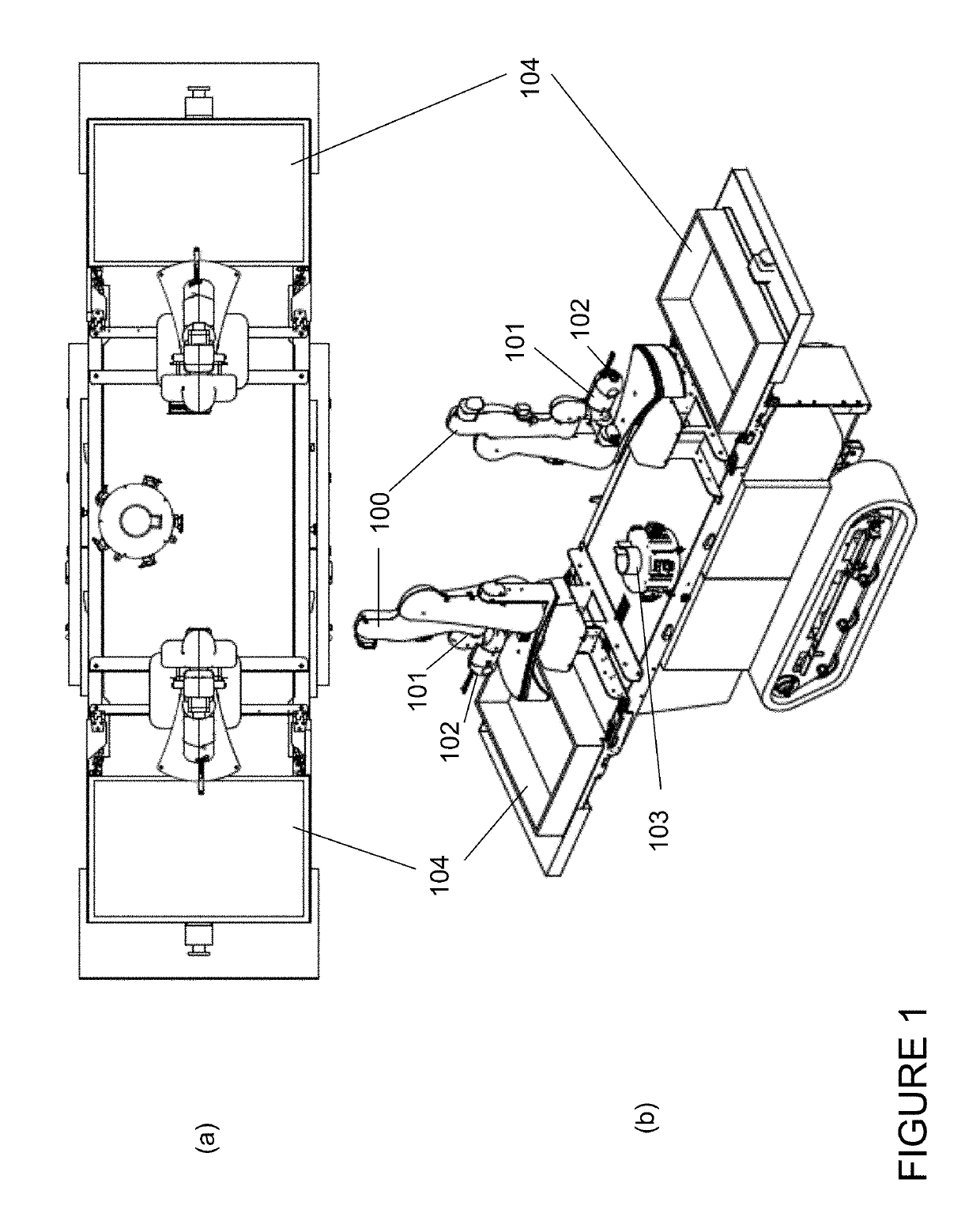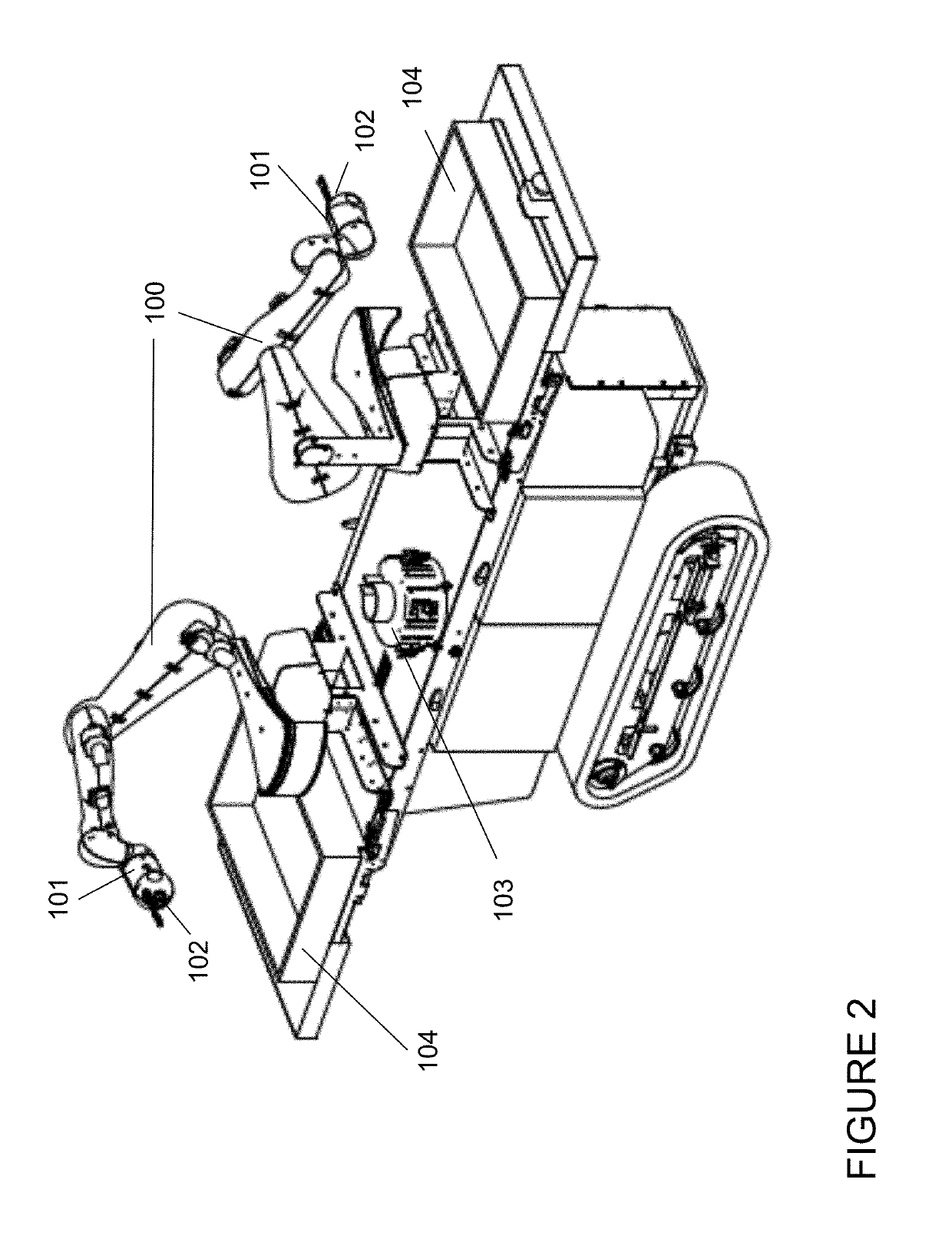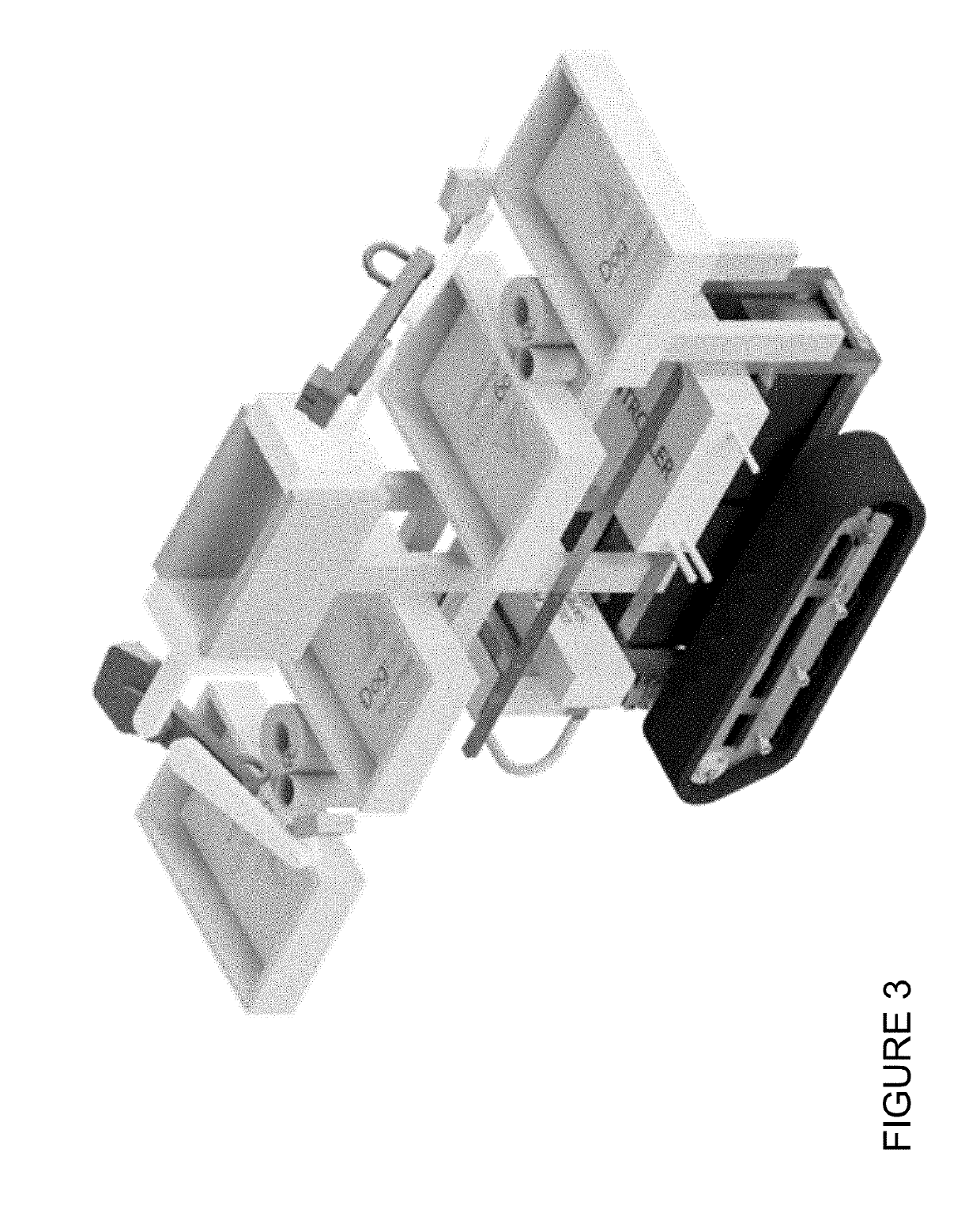Robotic fruit picking system
a robotic and fruit picking technology, applied in the field of robotic fruit picking, can solve the problems of short picking season, high labor intensity, and inability to efficiently and destructively harvest wheat,
- Summary
- Abstract
- Description
- Claims
- Application Information
AI Technical Summary
Benefits of technology
Problems solved by technology
Method used
Image
Examples
Embodiment Construction
[0053]The invention relates to an innovative fruit picking system that uses robotic picking machines capable of both fully autonomous fruit harvesting and working efficiently in concert with human fruit pickers.
[0054]Whilst this description focuses on robotic fruit picking systems, the systems and methods described can have a more generalized application in other areas, such as robotic litter picking systems.
[0055]The picking system is applicable to a variety of different crops that grow on plants (like strawberries, tomatoes), bushes (like raspberries, blueberries, grapes), and trees (like apples, pears, logan berries). In this document, the term fruit shall include the edible and palatable part of all fruits, vegetables, and other kinds of produce that are picked from plants (including e.g. nuts, seeds, vegetables) and plant shall mean all kinds of fruit producing crop (including plants, bushes, trees). For fruits that grow in clusters or bunches (e.g. grapes, blueberries), fruit ...
PUM
 Login to View More
Login to View More Abstract
Description
Claims
Application Information
 Login to View More
Login to View More - R&D
- Intellectual Property
- Life Sciences
- Materials
- Tech Scout
- Unparalleled Data Quality
- Higher Quality Content
- 60% Fewer Hallucinations
Browse by: Latest US Patents, China's latest patents, Technical Efficacy Thesaurus, Application Domain, Technology Topic, Popular Technical Reports.
© 2025 PatSnap. All rights reserved.Legal|Privacy policy|Modern Slavery Act Transparency Statement|Sitemap|About US| Contact US: help@patsnap.com



